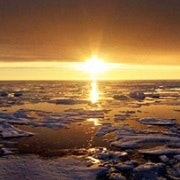Hot 2014 closes in on top spot in world temperature rankings
As representatives from around the world sit down in Lima to discuss how to tackle the ever-growing problem of climate change, it is becoming increasingly likely that 2014 will be the hottest year on record – beating the previous benchmarks set in 1998 and 2010.
This record is likely to occur despite the recent “warming hiatus”, which has featured a reduced warming trend in global-average surface air temperatures.
Figure 1: Historical January-October average surface temperatures relative to the long-term average. 2014 is the hottest over the globe.
Source: NOAA, Author provided
Of course, that doesn't mean every area of the world will experience a record-breaking hot year, even if it is the hottest on average globally. There is large variability in temperature trends around the world, so in some places the record hottest year could be 2014, whereas in other places it could be a different year.
In fact, while it has been unusually warm across much of the world this year, it's been cooler than average across eastern North America because of a severe winter there at the beginning of the year.
Australia, meanwhile, has just experienced its hottest spring on record, and in Europe it's also been hotter than normal. The Central England Temperature series, which dates back to 1659, is heading for its hottest year on record.
Figure 2: January-October 2014 was warmer than usual across most of the world.
Source: NOAA, Author provided
Digging into the data
There are three main data sets of global average surface temperature: two in the United States – one maintained by the National Oceanic and Atmospheric Administration and the other by NASA's Goddard Institute for Space Studies; and the third compiled by the UK Met Office's Hadley Centre and the University of East Anglia's Climatic Research Unit.
Small differences in the way these data sets are compiled (mainly related to how data is handled in regions where there are few observations) and uncertainties related to temperature measurements mean it is possible that not all the data sets will show 2014 to be the hottest year on record. A more detailed explanation of some of the differences between the data sets can be found here.
The UK Met Office's data point to a close-run contest for whether 2014 will set a new temperature record, with uncertainties leading to unclear rankings.
Figure 3: 2014 ranks as the hottest in the Met Office data set but there is high uncertainty in the ranking.
Source: UK Met Office, Author provided
This graph, and the other data sets, show that the hottest years on record have all occurred in the last couple of decades.
With November and December yet to be included it is unclear whether 2014 will rank as the hottest year on record, as the World Meteorological Organization has predicted. The differences in average temperatures between the hottest years are around 0.02C, well within the uncertainty range.
However, it is clear from these independently compiled data sets that Earth has warmed significantly over the past century. The most recent report from the Intergovernmental Panel on Climate Change stated that warming of the climate is “unequivocal”.
A host of studies documented by the IPCC have proved beyond reasonable doubt that human activity has played a major role in this heating.
As the climate continues to warm we are likely to keep experiencing record hot years over the next few decades.
The Lima talks, and the Paris meeting next year, may in part determine whether future generations will find that temperatures like this year's record will be considered normal, or even colder than normal, in 50 years' time.
 Andrew King is climate extremes research fellow at the University of Melbourne
Andrew King is climate extremes research fellow at the University of Melbourne
David Karoly is a professor of atmospheric science at the University of Melbourne.
This article was originally published on The Conversation. Read the original article here.
















